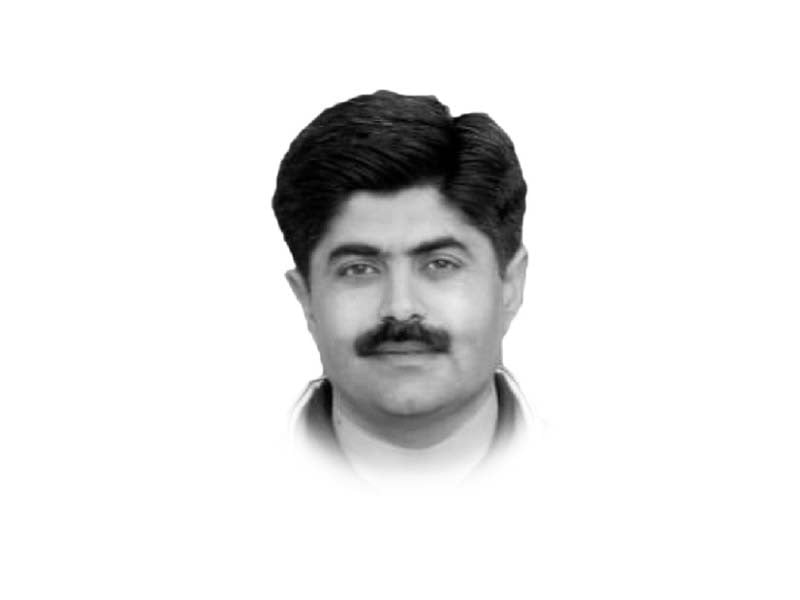
We are witnessing a shift in the world order. And Russia’s war on Ukraine is the starting point. It is a classical manifestation of the Mearsheimer’s theory of Offensive Realism which stipulates that in an anarchic international system, the quest for absolute power remains at the centre of national policies. Russia is no exception, especially when it has the status of a superpower. It took Russia more than three decades to build and extend its power beyond its geographical borders. Since 1989, Russia has worked silently to re-establish its glorious past. The humiliation of being broken into pieces by US-led powers after the Afghanistan war had united the already determined Russians. The dynamic and resilient leadership of Vladimir Putin has kept Russia’s national integrity intact as he did not let the nation forget about their glorious past. It was because of this “nationhood” that when Russian forces annexed Crimea in 2014 or recently invaded Ukraine, the entire Russian nation stood behind its President and armed forces. It was because of such support that the forces did not take long to gain control of Kiev. It is a known fact that the armed forces only deliver when they have the backing of their entire nation.
Notwithstanding, invasion of any sovereign country cannot be supported at any cost. However, the situation provides an ideal case study for students of security and international relations. A holistic purview of the Ukrainian crises reveals that it was primarily Ukraine that overestimated the US and the EU for their security assurances. No sovereign state fights for others, especially when the global economy is badly hurt by an ongoing pandemic. Still, Kiev misjudged the on-ground realities. Ukraine should have been diplomatically wise enough to mitigate the escalating tensions with Russia. It was clear that Russia would never allow the Ukrainian buffer to be used by NATO forces which, according to Russia, is supported by the US. Putin has therefore made it clear that anything that could potentially risk Moscow’s security will be met with fierce reaction. An enemy in the backyard was and is not acceptable to Russia at any cost. It was probably a futile effort by the US and its western allies to regain their dwindling power following an unceremonial withdrawal from Afghanistan.
Whether good or bad, the real debate is: why has such an incident occurred in the second largest country in Eastern Europe that meets all the standards of a celebrated soft power? The reason is simple and loud — security outsourcing.
When Ukraine gained independence, it had the second largest stockpile of nuclear weapons on its soil inherited from the disintegrated Soviet Union. The so-called doves around the world convinced the Ukrainian leadership to barter nuclear weapons for peace, prosperity and economic growth. Ukraine’s leadership miscalculated and risked their existence at the cost of a few pennies. They relegated hard power in exchange for soft power. They trusted the pseudo security assurances of the US, Russia and the UK thereby completely disarming themselves from the nuclear weapons. This was a mistake. Had Ukraine not disarmed itself, the situation today would have been totally different. The deterrence of nuclear weapons would have kept Russia away and if at all there was a chance of escalation, the world community would have immediately jumped in to defuse the hostilities instead of disgracefully offering an exit flight to the Ukrainian President.
The Ukrainian President’s taunting statement in which he regretted outsourcing Ukraine’s security to the US and NATO has already made headlines around the globe. He urged security pledgers to provide weapons and physical military support instead of hollow statements the UN Security Council. Now, Ukraine faces the same fate as Iraq, Syria and Libya, all of whom trusted foreign security assurances instead of building their own hard power infrastructures. Letting others to plan one’s security policies is no more advisable.
Pakistan has also once faced the same situation back in the 1970s and 1980s when it was pressurised through multiple diplomatic tools including economic sanctions to not develop nuclear weapons. However, the then Pakistani leadership preferred “eating grass” over compromising security priorities. The armed forces of Pakistan are second to none around the globe with regard to their motivation, professionalism and dedication. They delivered whenever asked by the nation and remain continuously motivated to sacrifice their lives for the sake of their motherland. Pakistan’s enemies fully know that the centre of gravity of Pakistan lies in its armed forces. If we want our coming generations to prosper, we have to provide them a safe and secure environment for which the armed forces need firm and continued support from its nation.
Pakistan’s nuclear weapons have been a successful deterrent against external threats. Our nuclear weapons are in safe hands and secured from both outside and inside threats. The state of the art and globally acknowledged command and control infrastructure multiplies reliability. Pakistan’s defence is meagre when compared with its eastern neighbour. Yet, it maintains a smart balance of power in the region without putting any tangible burden on its development budget. In the end, the Pakistani nation owes a lot to the scientists and managers of Pakistan’s strategic nuclear programme — one that is the guarantor of peace in the region and provides assured protection to Pakistan’s ideological and geographical borders.
Published in The Express Tribune, March 4th, 2022.
Like Opinion & Editorial on Facebook, follow @ETOpEd on Twitter to receive all updates on all our daily pieces.

1719315628-0/BeFunky-collage-(8)1719315628-0-405x300.webp)


1731329418-0/BeFunky-collage-(39)1731329418-0-165x106.webp)








COMMENTS (1)
Comments are moderated and generally will be posted if they are on-topic and not abusive.
For more information, please see our Comments FAQ